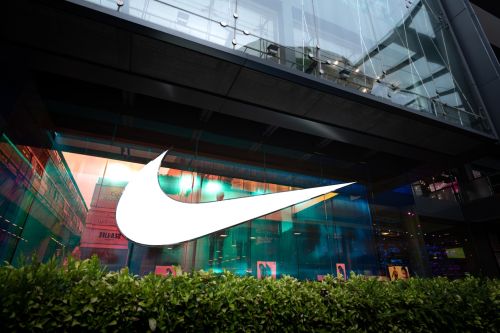Nike, Inc. recently took legal action against StockX LLC based on its alleged infringement of Nike’s well-known trademark in connection with its non-fungible token (“NFT”) marketplace. The athletic wear retail giant claimed in its lawsuit that StockX launched a collection of nine NFTs, with eight displaying Nike’s mark, to “garner attention, drive sales, and confuse consumers” into thinking Nike had collaborated with the online reseller. Nike purported in the complaint that not only does this harm the reputation the company developed over the last fifty years, but it also threatens the goodwill that consumers associate with its trademark.
What is the Dispute in the Nike V. StockX Trademark Lawsuit?
In the 50-page complaint, which was filed in a New York federal court in early February 2021, Nike claimed that StockX sold 558 Nike-branded Vault NFTs at “heavily inflated prices.” Nike argued that these sales were not only without approval, but consumers were likely to be confused and believe that the digital assets being sold by the online reselling platform were authorized — and associated with Nike.
Nike pointed to posts written by internet users on Twitter and Reddit that had exemplified consumer confusion regarding whether the company was associated with StockX and the NFTs. Nike also asserted in the lawsuit that StockX claimed the Vault NFTs were “100% Authentic,” in an effort to mislead consumers into thinking that the footwear manufacturer endorsed the product. However, Nike had nothing to do with the development of the NFTs and has received no royalties or profits from the sales.
Nike’s causes of action in the lawsuit include the following:
- Trademark infringement — Trademark infringement occurs when another party uses a trademark without permission, and in a manner that is likely to cause confusion or deception as to the origin of the goods.
- False designation of origin — A trademark owner may be entitled to bring a claim for false designation of origin when a competitor wrongfully uses their mark to create a false impression as to the origin of the goods.
- Unfair competition — Unfair competition arises when a party tries to confuse or deceive consumers into thinking their goods are affiliated with another brand.
- Trademark dilution — Trademark dilution occurs when a competitor uses a famous mark in a way that blurs or tarnishes it.
- Injury to business reputation — Unauthorized use of a trademark can damage the reputation of a business and its goodwill with consumers.
To refute Nike’s argument, StockX contended that the purpose of its NFT collection is to track proof of ownership of the sneakers stored in its facilities. The company claimed that the NFTs are not virtual sneakers, but are simply used as more of a “claim ticket.” StockX asserted that the allegations made by Nike are in contradiction to the “settled doctrines of trademark law” and based on a misunderstanding of how NFTs work.
While Nike is requesting a court order for the destruction of the NFTs, among other relief, the digital nature of NFTs poses a unique challenge concerning how this remedy could be carried out. Notably, the NFTs only exist on a blockchain — one NFT cannot be removed or destroyed without breaking the entire blockchain’s consistency. The only possible action might be “burning” the NFT which sends it to an inaccessible wallet. As trademark infringement lawsuits in connection with NFTs become more common, it will be interesting to observe how such orders are enforced.
Non-Fungible Tokens - The New Frontier
Due to their innovation and complexity, NFTs are a new frontier — and they are certainly making their mark on trademark law. Although they have been gaining a significant amount of notoriety over the last year, NFTs have been in existence since 2014. They are virtual products linked to the blockchain, so that ownership can be tracked. No two digital files are alike, and they cannot be duplicated.
An NFT is purchased online using cryptocurrency and encoded with the same type of software to verify that it is the only digital asset with those attributes. Importantly, when an NFT is purchased, it is typically the token that is bought, rather than the underlying digital asset. Each NFT comes with a contractual set of rules regarding ownership. But even if the contract grants ownership of the actual digital asset, the artist’s intellectual property rights remain with them unless they have agreed otherwise.
To understand what NFTs are, it is also necessary to have a basic comprehension of blockchain. Simply put, a blockchain is a form of digital ledger that records transactions. NFTs are generally bought and sold with cryptocurrency on the Ethereum blockchain. However, other blockchains also support NFTs or plan to add them.
While some contend that NFTs are merely a trend, others contemplate that they will be integrated into commerce permanently. The trademark infringement lawsuits concerning NFTs are just starting to be filed, and it is expected that many more will soon follow.
Contact a Knowledgeable NTF Trademark Attorney
It’s crucial to take the necessary measures to protect your NFT from unauthorized use by competitors who seek to profit from the goodwill of your business. Our trademark law firm helps business owners and entrepreneurs in a variety of industries shield their trademarks and safeguard their bottom lines. Contact us today to schedule a free 15-minute consultation.




